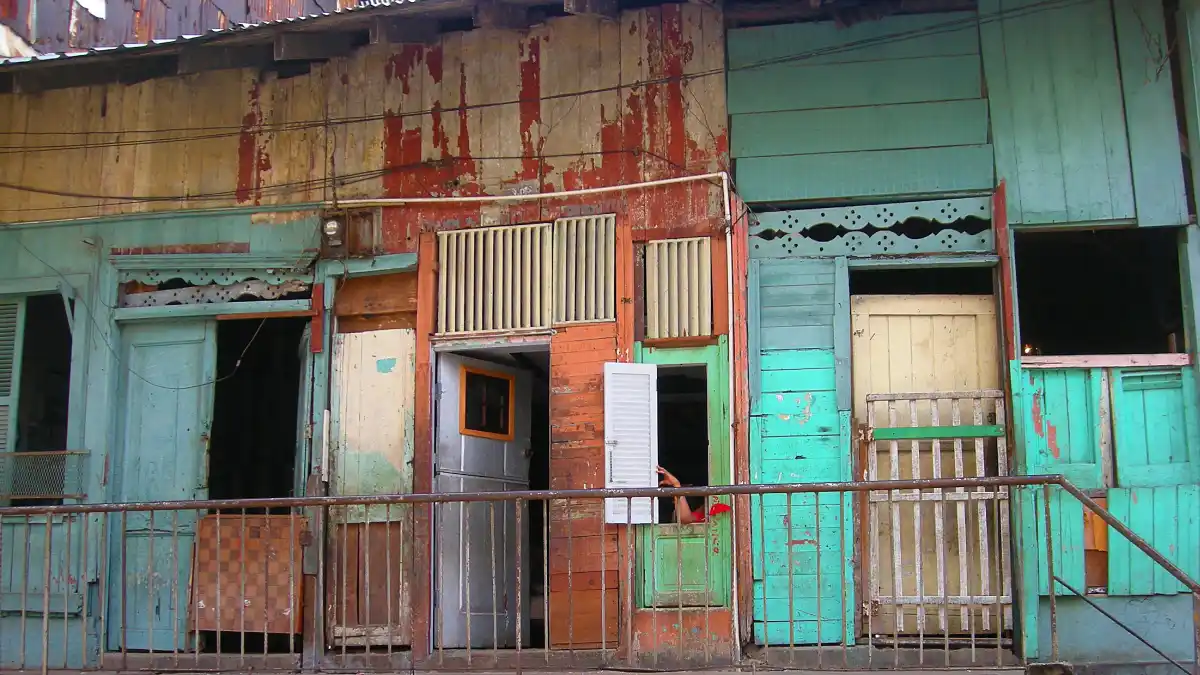What remains when electricity becomes a rumor
In April 2009, the History Channel aired the pilot of Life After People. It was speculative nonfiction, the kind of televised daydream that usually lives in the darker corners of philosophy departments or late-night dorm room arguments. One second, humanity is here. The next, gone. Not through war, disease, or the usual apocalyptic melodramas. Just vanished, like a magician whisking a tablecloth away but forgetting to leave the dishes.
The camera then lingered on the world without us. Skyscrapers corroded. Bridges collapsed. Domesticated animals—so used to their roles as pampered prisoners—died by starvation. The great pulse of human industry, suddenly unplugged, wound down like a gramophone losing steam.
When I first watched it, I was hooked. Speculation is my crack, and I am—if we’re being blunt—a prepper type. Not the stereotype with bunkers full of freeze-dried lasagna and enough ammo to re-fight Verdun. My preparation is not about hoarding things but about hoarding capabilities. I want to know how to keep myself alive regardless of the chessboard.
I know how to build a shelter in the woods. I can hunt and fish and identify plants that won’t kill me in a single bite. I can find safe drinking water without praying for bottled Evian to fall from the sky. At home, I can fix just about anything that breaks. I code. I can stumble through ten languages at a serviceable level. I know my city’s veins, choke points, and escape routes. If the undead ever shamble up my street, I already have a loose operational plan.
This post first appeared in 2019, back when I still entertained hope that rational arguments might sway public sentiment. I’ve since remastered it—sharpened the edges, clarified the threat, and realigned it with the Grimwright ethos: use what works, discard the rest, and always—always—question the narrative. The date remains unchanged as a historical marker. The content does not.
Sounds crazy? Maybe. But life has a nasty habit of serving up “impossible” scenarios right when you least expect it. And when that day comes, I’d rather be rehearsed than clueless.
But I digress. Back to the show.
What Life After People revealed wasn’t some Gaia-loving fantasy where Earth heals like a spa patient finally left alone. It was about decay, about entropy kicking in the door. Infrastructure, that fragile web we’ve spun across the planet, cannot live for long without constant feeding. Planes fall from the sky. Nuclear reactors trip their safety systems and sputter out. Chemical plants grind down. Water stops flowing. Power grids wink out like candles in the wind. Even our grandest monuments—the Eiffel Towers, the Hoover Dams—become brittle toys, swallowed by rust and weeds.
Such is the nature of decay. Civilization is not a fortress; it’s scaffolding. And scaffolding falls without men to hold it up.
Let’s Twist the Knife
Now, let’s indulge in a darker speculation. Let’s not imagine humans vanish. Let’s imagine instead that fossil fuels vanish. A snap of the cosmic fingers, and oil, coal, and gas evaporate from the ledger of reality. No wells, no mines, no pipelines.
Would the green utopists rejoice? Absolutely. For about five minutes. Twitter would explode in smug hashtags. “The Planet is Free!” “End of Oil Tyranny!” There would be dancing in vegan cafés, earnest speeches about finally entering the age of renewable harmony.
And then the hunger would arrive.
Their rejoicing would be brief because many of them are the most exposed. Most live in cities, divorced from the mechanics of survival. They engage in careers that evaporate the moment reality requires calories: consultants, influencers, mid-level bureaucrats, abstract knowledge workers. All elegant jobs that depend entirely on a surplus provided by fossil fuels.
Without that surplus, their services are worthless. No one barters chickens for PowerPoint slides. No one will trade firewood for a lecture on equity. Overnight, their skill sets are revealed as what they always were: luxuries.
And luxuries don’t survive famines.
Cities: Glittering Coffins
Cities are marvels of efficiency only as long as trucks roll and grids hum. Remove fossil energy and they become prisons of glass and steel. Every calorie, every liter of water, every medical intervention depends on a fuel source that no longer exists.
Without it, the math is grim. Cities turn from hives into mausoleums in less than a month. Survivors try to escape, but escape to what? Suburbs? Rural landscapes already strained? A peasant with two cows and a potato patch doesn’t greet a flood of starving refugees with open arms. History shows us he greets them with a pitchfork.
How many die?
Let’s turn to history for a crude answer.
Fire as Civilization’s Real God
For most of human existence, poverty wasn’t a condition. It was the baseline. In 1500, even kings endured drafty castles, rotten food, and medical treatments that would embarrass a witch doctor. Commoners lived in filth, scratching out an existence one bad harvest away from extinction.
Then came fire—bottled, disciplined, multiplied through coal, oil, and gas. Three centuries ago, the Age of Discovery, the Enlightenment, and the Industrial Revolution braided into a single rope and pulled billions out of squalor.
Population numbers tell the story. From the Roman Empire to 1600—nearly two millennia—humanity crept from 200 million to 500 million. Then the fossil fuel era began. Within 200 years, the number doubled. Within another 200, it ballooned to eight billion. Fossil fuels were not an accessory to this growth; they were its bloodstream.
Take them away, and the carrying capacity of Earth reverts. Without fossil fuels, maybe two billion could live at a rough subsistence level. Everyone else? Ghosts waiting for a famine.
These numbers aren’t exact, but they don’t have to be. The general lesson is brutal enough: six billion of us exist only because fossil fuels allow it. Remove the fuels, remove the people.
The California Preview
If that’s too abstract, let’s look at California’s PG&E blackout. A single week without power caused small businesses to lose a quarter of their monthly revenue. For many, that was a death sentence. Families lost livelihoods, and cascading economic damage rippled outward. And this was just a week.
Multiply that across an entire nation, across the globe, and across forever. The veneer of normalcy peels off in hours. The economy implodes not because of war, but because your refrigerator doesn’t work.
Welcome Back to the Middle Ages
Life without fossil fuels looks medieval. Not in the charming, romanticized “knights and minstrels” sense but in the lice, disease, and short lifespans sense.
Want to cook? Fetch firewood. Want to bathe? Carry water. Want light? Burn candles. Each act of living becomes labor. And that labor consumes the very time and energy once freed by fossil fuels to allow things like science, art, and political philosophy.
The elites, of course, will insulate themselves. They’ll have solar panels, batteries, private wind turbines. They’ll toast each other in their carbon-free enclaves. But the masses? Back to serfdom.
Food is the executioner. Modern agriculture is mechanized and fertilized through petrochemicals. Strip that away and famine explodes. Those photographs of Ethiopian famine victims? They’ll look like postcards compared to the global spectacle awaiting us. Expect cannibalism. Expect zoos emptied for meat. Expect neighbors eyeing each other like Orwell’s pigs eyeing horses: not comrades, but calories.
Water will vanish too. Pumps require electricity. Reservoirs drain. Wells need manual retrofits. Sewers clog. Waste piles up. Rats inherit the streets. Disease returns with medieval confidence: cholera, typhoid, dysentery. Civilization doesn’t collapse in a cinematic explosion—it rots, one clogged sewer at a time.
And for those clutching their solar panels? Most are grid-tied. No grid, no juice. Try explaining that to your starving neighbor when he comes to take your roof off with a crowbar.
Mad Max Without the Hollywood Budget
The cities die first. Refugees scatter, carrying contagion and despair. Rural zones adapt by force. It will look like Mad Max, but grimmer—no choreographed chase scenes, no punk-rock aesthetics. Just starvation, murder, and barter economies that make Lord of the Flies look like a summer camp.
You think I exaggerate? Look at Venezuela. A nation with vast oil reserves, gutted by mismanagement, reduced to people scavenging garbage trucks. If that can happen with oil in the ground, imagine life with no oil at all.
We will not decarbonize gracefully. We will not transition with TED Talks and solar startups. We will collapse gracelessly. Six billion dead, two billion scrambling, and a handful of elites living like Lucrezia Borgia—luxurious, yes, but always in fear of poison in the wine.
Fire as Our Fatal Dependency
Strip away the eco-slogans, and here’s the truth: humanity is not “addicted” to oil like a drunk is addicted to whiskey. Humanity is oil. Fossil fuels are not a vice—they are an organ system. Remove them, and you don’t get rehabilitation. You get rigor mortis.
We were farmers once. We will be farmers again. The only question is whether you’ll be holding the plow—or rotting in the field.




